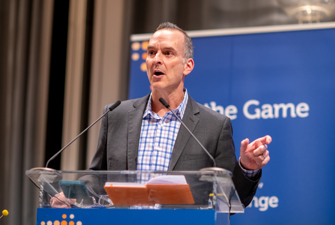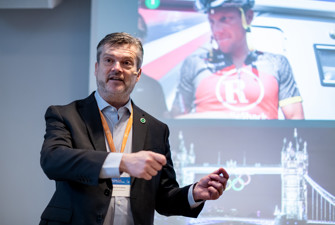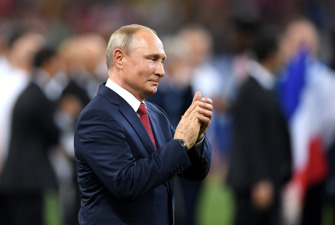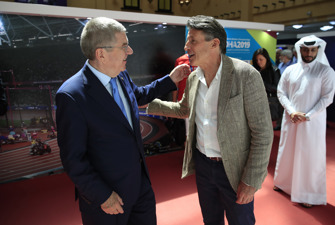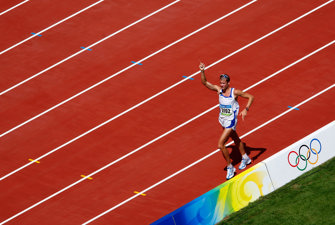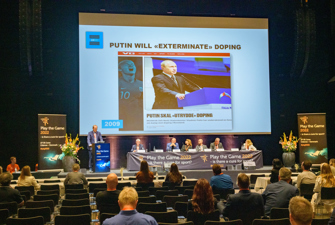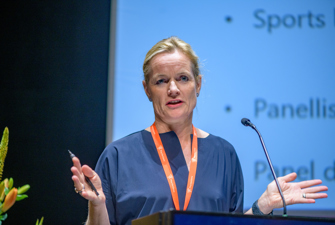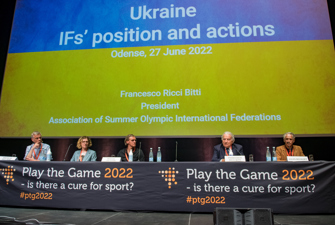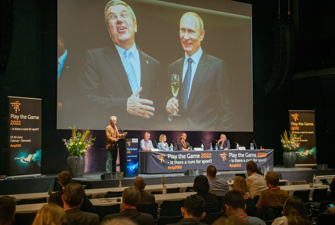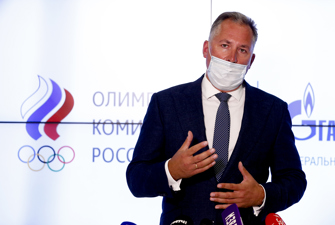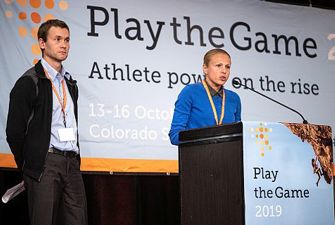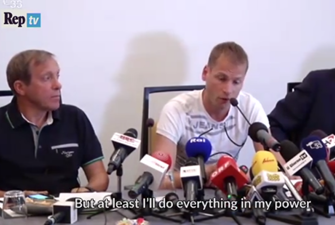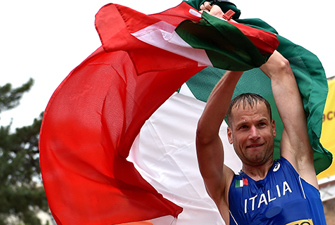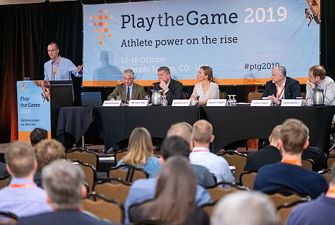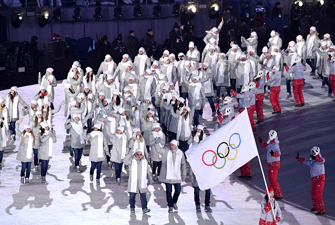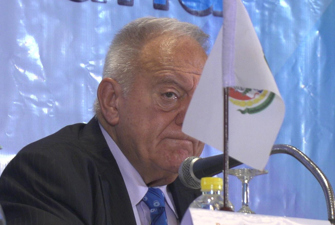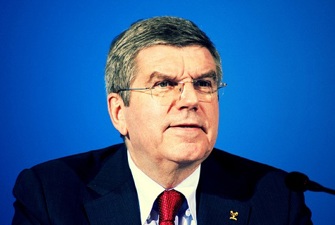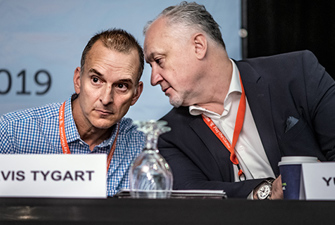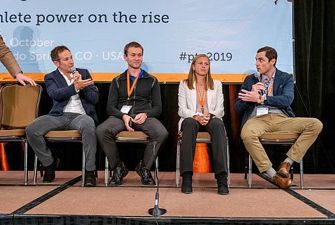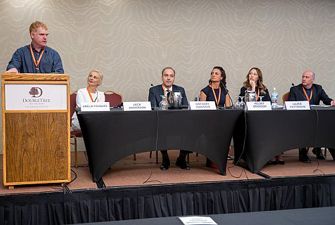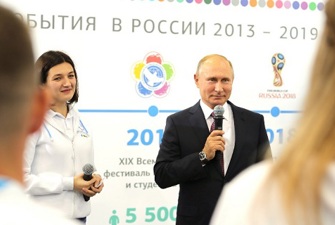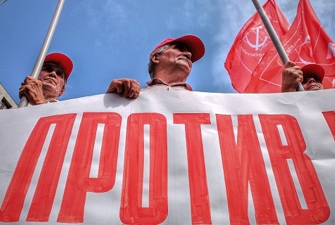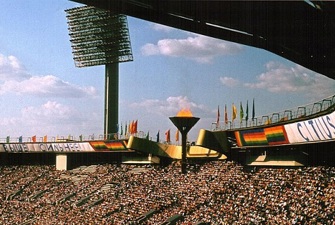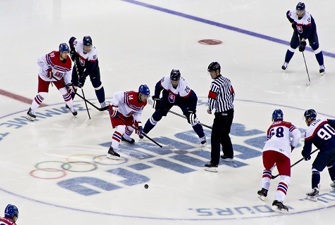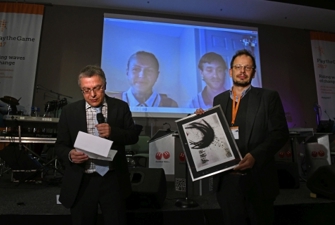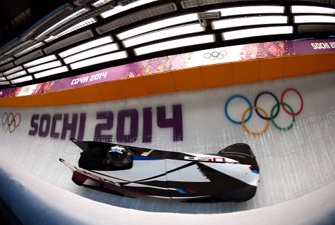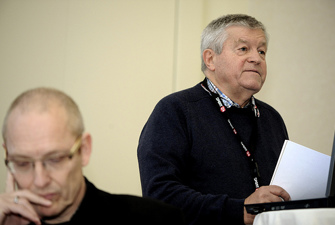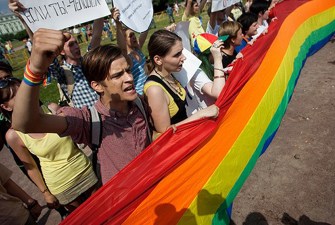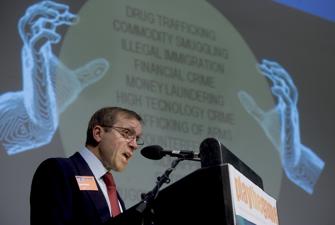The character assassination of an anti-doping advocate
How highly did the Russian sports authorities value the presumption of innocence as a legal principle when they decided to sack Yuriy Ganus, the former Director General of the Russian Anti-Doping Agency? Not much as Ganus demonstrates in his written comments to the audit report that was used as the basis for firing him.
The presumption of innocence is a legal principle that has played a key role in the Russian authorities’ defense strategy during the six year-long investigation by the World Anti-Doping Agency (WADA) into a state sponsored doping system in Russia.
But how highly did the sport leaders at the Russian Olympic Committee (ROC) value the presumption of innocence as a legal principle when they decided to sack Yuriy Ganus as Director General of the Russian Anti-Doping Agency (RUSADA) in August 2020?
Play the Game has searched for an answer to that question in a confidential audit report that led to the sacking of the outspoken anti-doping advocate even though he denied any wrongdoing and tried to prove his innocence.
The audit report clearly indicates that the sacking of Ganus was the result of a well-planned character assassination of an independent Russian opponent to the country’s defense strategy in the case of state sponsored doping, and the action was ordered by the ROC and executed by the auditor.
Chosen among 700 candidates
Even though the audit report was labelled as confidential, the ROC published the report on their website. Since then, the media has also published some details of the audit report.
However, to offer the public a chance to evaluate the possible motives behind the audit report, Play the Game now publishes the full audit report together with Ganus’ written responses to the report. But first it is relevant to look at Ganus’ history in RUSADA.
Without any previous work experience in anti-doping, Ganus was hired by the founding parties of RUSADA, the ROC and the Russian Paralympic Committee (RPC), in August 2017 at a time when RUSADA was declared non-compliant with the WADA code.
Ganus was chosen from a list of 700 candidates, the former ROC president Alexander Zhukov told the Russian news agency Tass at the time. The former businessman was hired to restore WADA’s trust in RUSADA as an independent and transparent anti-doping agency. But soon it turned out that Ganus was far more outspoken than the Russian sports leaders liked him to be.
In several open letters published by both Russian and international media, Ganus attacked a widespread doping culture in Russian sport by saying that cheating Russian sports authorities and athletes were only cheating themselves:
“Our sport deserves full membership of the international sports family, but first we need to remove the unacceptable approaches, methods and people who have driven it into a dead end and discredited it in the eyes of the world,” Ganus wrote in an open letter that upset many Russians and confused leading anti-doping advocates in other countries.
“On the one hand, you really want to support him and embrace him for some of the positions he’s taken,” the US Anti-Doping Agency chief executive Travis Tygart once said according to The Washington Post before adding:
“On the flip side, you want to be very cautious that the powers that he reports to, as you’re embracing him, aren’t reaching in your back pocket and stealing your wallet.”
A private letter to WADA
As the world of anti-doping was busy trying to figure out why Ganus was free to speak out about an on-going Russian doping culture at a time when the Russian government and sports authorities were trying to frame themselves as innocent victims of anti-Russia hysteria, he began to lose support inside Russia in late 2019.
For more than two years, the RUSADA supervisory board and the founding parties of the agency, ROC and RPC, had accepted the outspoken Director General as head of RUSADA as long as he was able to restore WADA’s trust in the Russian anti-doping system after the exposure of the doping scandal.
The turning point came in December 2019 when the governing bodies of RUSADA agreed to challenge the decision of WADA that found Russia guilty of a large-scale data manipulation in the anti-doping laboratory in Moscow.
WADA imposed restrictions on Russia in relation to the country’s participation in major international sports events, the participation of Russian representatives in the management of international sports, and Russia’s hosting of high-level international competitions for a period of four years.
Ganus did not agree with the decision of RUSADA’s governing bodies. He was forced to comply with the decision by signing a letter to WADA in which RUSADA challenged the WADA decision, but he also added a private note in which he explained his critical position towards the governing bodies of the agency.
For that private note to WADA Ganus was never forgiven. Two months later, in February 2020, he realised for the first time that the governing bodies of RUSADA no longer trusted his loyalty and attempted to sack him.
Charges of ‘possible corruption’
At first, Ganus was protected by WADA who tried to preserve the independence of RUSADA’s management. But according to corporate law, companies do not need a reason to change directors. And in early 2020 the Russian auditor FinExpertiza was hired by the founding parties of RUSADA to produce a confidential audit report that turned out to be the beginning of the end for Ganus as Director General of the Russian anti-doping agency.
When reading both the full FinExpertiza report and Ganus’ written responses to the report, it becomes clear why WADA was extremely concerned and the Institute of National Anti-Doping Organisations (iNADO) noted a serious conflict of interest when the founding parties of RUSADA ultimately decided to sack Ganus in August 2020.
In the introduction to the report, which was produced in secret, FinExpertiza claims to have ‘identified a number of facts that bear or may bear potential risks of corruption, conflict of interest, abuse of law, abuse of the RUSADA head position, risks associated with activities in other companies, and as an individual entrepreneur’.
In addition, the FinExpertiza report claims to have ‘with a high probability’ established facts of ‘potential corruption and corrupt behavior’ and ‘indications of abuse of taxi services’. Furthermore, the auditor does not believe ‘that the internal control methods applied in RUSADA can provide an adequate level of economic security’.
No facts of any criminal actions
But when reading the report in detail, it is difficult to find one single piece of evidence that proves the serious charges the report raises against the former RUSADA director general and leading members of his staff.
The audit report is packed with examples of ‘possible corruption’ and ‘indications of conflict of interest’ in relation to ‘sales of products, purchase of goods, works and services, and remuneration of employees’. But the report presents no proof of any wrongdoing. The auditor just suggests that Ganus in theory could be guilty of almost any crime. A fact that even the auditor himself concludes at the end of the report:
“The possible facts of corruption established by us are probabilistic in nature and can be interpreted either as facts of corruption or as facts of inefficient management,” the auditor notes and further explains by stating:
“In the course of our research, we have not established facts that clearly indicate the composition of any criminal act in the actions of individuals, such as: transfers of funds to companies that were not created to conduct normal business activities (cash out), withdrawal of assets to controlled companies, etc.”
Possible law enforcement actions
Even though FinExpertiza did not expose any criminal actions at RUSADA, the auditor in the report continues to cast doubt on the integrity of Ganus and his staff:
“Given the close attention to the activities of RUSADA by media and sports organizations, the appeal of the facts we have identified to the law enforcement agencies may create an information background, the development of which we cannot predict.”
The FinExpertiza report discusses in detail an appeal to law enforcement agencies:
“Due to the specifics of the research, its non-obviousness to employees of the organization under research, we did not conduct a number of actions that may more likely indicate the commission of an illegal act and its successful consideration (prosecution) by law enforcement agencies. This assessment can be made by law enforcement agencies based on the results of their audit activities.”
The auditor also points out a list of possible law enforcement actions that could be taken against the RUSADA management:
“Interrogation of persons connected with business operations. Analysis of counterparty bank statements. Analysis of documents on interaction with contractors. Conducting special technical events such as analysis of correspondence, receiving information from technical communication channels, listening to telephone conversations, etc.”
A tendentious behavior of the auditor
After concluding the audit, FinExpertiza sent the report to the customers, RUSADA’s founding parties ROC and RPC, who published the report on their websites in July 2020. Ganus immediately denied all accusations. But in the light of possible law enforcement actions, he also decided to defend himself by responding in writing to every single charge.
In his response, Ganus noted that ‘the subsidy is provided to RUSADA under an agreement signed with the Ministry of Finance of the Russian Federation’ and that ‘RUSADA cannot dispose of these funds without the control of the Treasury and the Ministry of Finance of the Russian Federation’.
Ganus also stated that the report was ‘based on incomplete information’ and that ‘the auditor did not request from RUSADA all the required and available documents containing the necessary information for an objective judgement, while making baseless judgements about a possible presence of corrupt behavior and possible illegal actions’.
“Given the fact that conclusions were drawn about improper, even corrupt conduct of affairs, such an approach to the preparation of the auditor’s conclusion may indicate a tendentious deliberate behavior of the auditor himself (based on the definition given by him) aimed at discrediting the persons mentioned in the report, in respect of which the auditor drew conclusions”, Ganus wrote and added:
“Before conducting search in open and conditionally open sources of information, the auditor should have obtained the available documents from us. But he did not. The questions arise – why? Maybe he did not need them to form the auditor’s conclusions?”
Deliberate fabrication of false facts
In his response to the report, Ganus explains in detail his view of the audit. To every single accusation in the report, he notes that ‘the groundless findings of the auditor indicate the likely signs of deliberate fabrication of false facts’ and in his general conclusion of the full report, he also attacks the hidden form of the audit:
“The auditors did not use all the documents available in the RUSADA Accounting Department when conducting their audit, and therefore the objectivity of the judgements and conclusions of the FinExpertiza auditors is extremely controversial, regardless of their chosen hidden form of research,” he notes.
“Such a hidden form of audit does not help to establish the true State of Affairs in the organization. Even when conducting tax or other audits, if the inspectors have questions, they are addressed to the person being audited and the person being audited has the opportunity to provide the proper documents.”
To Ganus, the audit demonstrated by FinExpertiza ‘was aimed at hidden collection of information on customer request and at deliberately fabricating false arguments and facts directed against the Director General and Deputy Director General of RUSADA’.
He argued that because the report was based on incomplete and therefore unreliable data, the entire report was a ‘distortion of the real picture within RUSADA’.
Creates a risk of misuse
Furthermore, Ganus concluded that the publication of the confidential audit report on the ROC website, including disclosure of information about RUSADA contractors and business processes, ‘potentially creates a risk of misuse’ in relation to ‘software products and methods of information processing’ and ‘processes of investigation of doping violations in the field of sports’:
“In this regard, we can talk about a violation of the International Standard on Protection of Privacy and Personal Information, since there is a threat of interference and disclosure of data under the protection of international jurisdiction,” he argued.
To Ganus, the FinExpertiza report was not only conducted to discredit a new independent RUSADA and to fight its leaders, ‘but also for the secret collection of information in the interests of the ROC and RPC, and possibly other persons under the pretext of a seemingly harmless audit, given that the ROC and RPC are subject to RUSADA doping control, as RUSADA tests Olympians and Paralympians’, he wrote.
Complaint to the auditor association
Since Ganus left RUSADA, he has kept a low profile in public. For more than four months he has had the chance to think about his future, his next steps, and how to defend himself against possible deliberately fabricated law enforcement actions.
So far, Ganus is not aware of any police investigation of the accusations in FinExpertiza’s audit report and he has decided that it is probably a waste of time to go to court in trying to defend himself against the accusations in a judicial system which may be influenced by the authorities.
But before leaving RUSADA, Ganus filed an official complaint about the FinExpertiza audit with the Russian association of auditors. He also received a reply in which he was told that the disciplinary commission of the association was considering his complaint and had transferred his complaint to the association’s quality control commission for review.
A character assassination
Ganus is still waiting for the result of the review of his complaint. But no matter what result the Russian association of auditors comes up with, he personally has no doubt that the FinExpertiza report was an attempt at a character assassination of an outspoken anti-doping advocate:
“It was a deliberate report that was intended for the authorities to replace a RUSADA management that were inconvenient to them by using baseless accusations aimed at discrediting me,” Ganus says to Play the Game.
While the former RUSADA Director General has not given up defending his integrity, what he will do next is uncertain:
“I invested myself in RUSADA, RUSADA was my life. After all this, I am still thinking about my future in anti-doping.”







